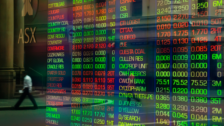Passive funds dominate ETF flows despite volatility
BetaShares this week released its Half-Year Review of the exchange traded fund industry, with a few surprises in store for one of the most popular parts of the investment sector at the moment.
The predominantly passive, index-tracking sector wasn’t immune from the weak performance across global capital markets in 2022 with assets under management for the sector as a whole falling 9 per cent, to $124.3 billion.
This was solely driven by investment performance, though, with ETFs actually seeing strong inflows of new money, gaining $6.2 billion for the half-year and bucking the trend of almost every other part of investment markets.
Part of this strength was driven by a near record of new issues, 23 in total, with nine of these products issued by groups who previously were not part of the market. The launch of ETF Securities’ two crypto-tracking ETFs saw a surge in interest. Actively managed strategies represented close to one-third of the new issues over the period.
The standout was likely the 45 per cent jump in the value of all ETFs traded, with the structure overcoming concerns about liquidity, with both professional and retail investors now embracing the easy to implement and primarily low-cost options. Looking more closely, a large portion of the volume is coming via many of the ETFs that offer ‘hedges’ against volatility, suggesting they are being used by truly active portfolio managers.
While hedging has become more popular, by and large the majority of ETF assets are held in traditional ‘buy and hold’ products with Vanguard, iShares and State Street filling out the top five holdings with $20 billion in assets combined. In fact, Vanguard controls about 48 per cent of the ETF market, with BetaShares the next best at 13 per cent. That said, ETF Securities’ acquisition by Mirae-Global X ETFS will likely see further supply and action in the industry.
Not unexpectedly, Australian equities gained close to half of the $6.2 billion in flows during the month, with investors young and old returning to the ‘old-fashioned’ bank- and resource-dominated index amid a selloff in global technology and growth stocks. Magellan has been the primary detractor, with the Magellan Global Fund (ASX:MGOC) moving into second place after seeing another $2.3 billion leave the firm’s product suite.











